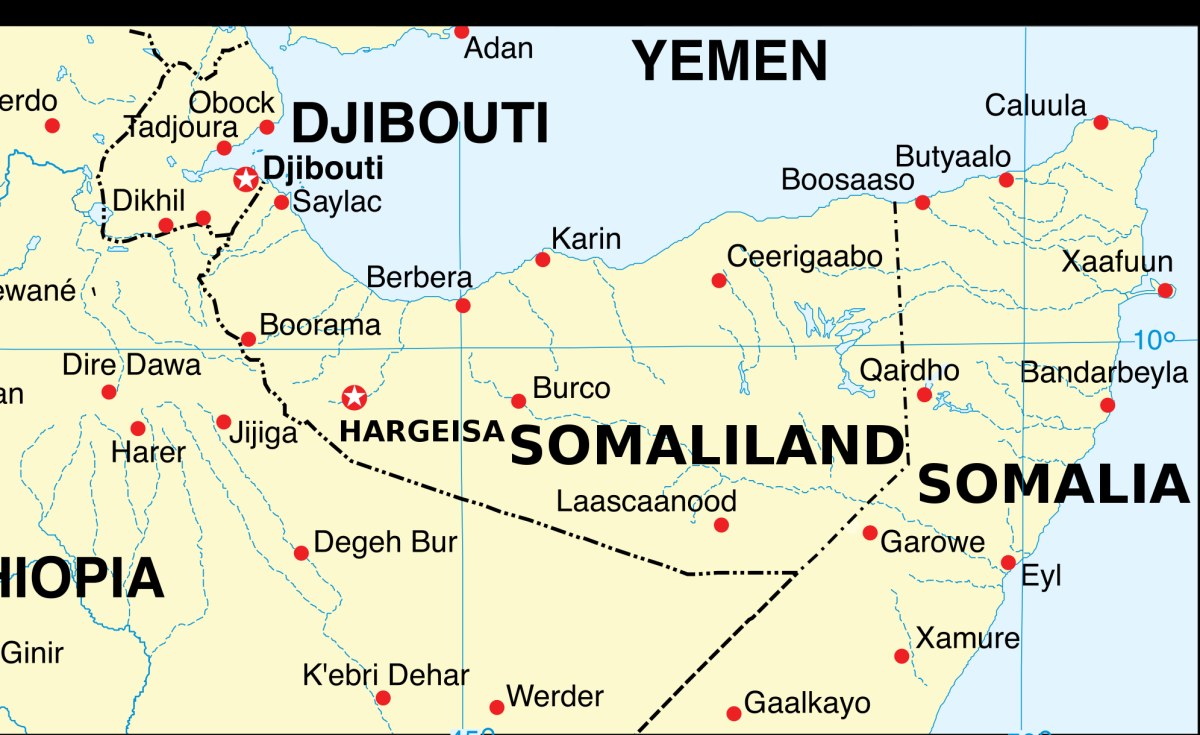

By Abdi Jama
The fall of Las’anod, once integral to Somaliland’s territory, marks a profound shift toward the independent administration of SSC Khatumo, critically compromising Somaliland’s territorial integrity. This region’s loss under President Colonel Muse Bihi’s tenure not only signifies a territorial defeat but also a deep rupture in Somaliland’s social and political fabric.
Las’anod’s secession has severely undermined the unity maintained by Bihi’s predecessors. This political loss symbolizes the fractured state of national cohesion under the current administration, with ramifications that affect both the immediate political landscape and the long-established social cohesion essential to Somaliland’s stability.
The erosion of social cohesion among citizens is evident. The once strong sense of unity and shared identity has been replaced by division and distrust, a direct consequence of the administration’s failure to manage internal conflicts and address the grievances of neglected communities. Policies of exclusion, lack of dialogue, and failure to engage in meaningful reconciliation have fostered regional autonomy and separatist sentiments.
Moreover, the disintegration of social cohesion is exacerbated by increasing polarization and fragmentation along clan lines, driven by the administration’s divisive tactics. The repercussions are not just political but social, as communities once coexisting peacefully are now divided by mistrust and resentment.
The establishment of an independent administration in Las’anod signifies a significant threat to the very concept of a unified Somaliland. It challenges the legitimacy of the central government and sets a dangerous precedent for other regions that may harbor similar aspirations of autonomy. This shift jeopardizes the efforts of those who have worked towards a cohesive and unified Somaliland, where diverse communities could coexist and thrive under a shared national vision.
The loss of Las’anod and the resulting breakdown in social cohesion underscore the urgent need for a comprehensive reassessment of Somaliland’s governance strategies. The administration must prioritize national unity and integrity by addressing the root causes of division and unrest. This requires a commitment to inclusive governance, equitable resource distribution, and genuine efforts to heal societal fractures.
However, under the current Kulmiye administration, styled after a junta and led by two colonels, significant efforts to address these issues are not expected. The inability and unwillingness of President Muse Bihi’s regime to confront these challenges only serve to deepen the crisis. Accountability must be squarely placed on President Colonel Muse Bihi and his incompetent Loyalist Minister of Security and Interior, Colonel Mohamed Kahin, whose collective failure in leadership, decision-making, and accountability has precipitated this disaster.
The electorate, driven by the urgent need for change and restoration of national integrity, is poised to reject a party that has failed to uphold effective governance and national cohesion. This issue must catalyze the political demise of Kulmiye in the upcoming election. The profound disillusionment with the government’s handling of Las’anod’s secession and its broader implications for Somaliland’s unity should spell the end for Muse Bihi and his team. The urgent need for new leadership that can effectively address these critical issues and restore trust and stability in Somaliland cannot be overstated.
more recommended stories
 Somaliland’s Berbera Industrial Park: A New Era of Investment and Job Creation
Somaliland’s Berbera Industrial Park: A New Era of Investment and Job CreationThe Government of Somaliland, under the.
 President Irro’s Landmark Visit to UAE: A Diplomatic and Economic Win for Somaliland. Dubai, UAE – Somaliland’s Diplomatic Breakthrough
President Irro’s Landmark Visit to UAE: A Diplomatic and Economic Win for Somaliland. Dubai, UAE – Somaliland’s Diplomatic BreakthroughBy: Abdi Jama President Dr. Abdirahman.
 Kenya’s Unjustifiable Interference in Sudan: A Grave Violation of International Law and Regional Stability
Kenya’s Unjustifiable Interference in Sudan: A Grave Violation of International Law and Regional StabilityBy: Abdi Jama Kenya’s continued meddling.
 𝗙𝗼𝗿𝗺𝗲𝗿 𝗣𝗿𝗲𝘀𝗶𝗱𝗲𝗻𝘁 𝗠𝘂𝘀𝗲 𝗕𝗶𝗵𝗶’𝘀 𝗥𝗲𝗰𝗸𝗹𝗲𝘀𝘀 𝗔𝗰𝘁𝗶𝗼𝗻𝘀 𝗠𝘂𝘀𝘁 𝗡𝗼𝘁 𝗕𝗲 𝗜𝗴𝗻𝗼𝗿𝗲𝗱 – Abdihalim Musa
𝗙𝗼𝗿𝗺𝗲𝗿 𝗣𝗿𝗲𝘀𝗶𝗱𝗲𝗻𝘁 𝗠𝘂𝘀𝗲 𝗕𝗶𝗵𝗶’𝘀 𝗥𝗲𝗰𝗸𝗹𝗲𝘀𝘀 𝗔𝗰𝘁𝗶𝗼𝗻𝘀 𝗠𝘂𝘀𝘁 𝗡𝗼𝘁 𝗕𝗲 𝗜𝗴𝗻𝗼𝗿𝗲𝗱 – Abdihalim MusaYesterday, Somaliland witnessed a deeply troubling.

